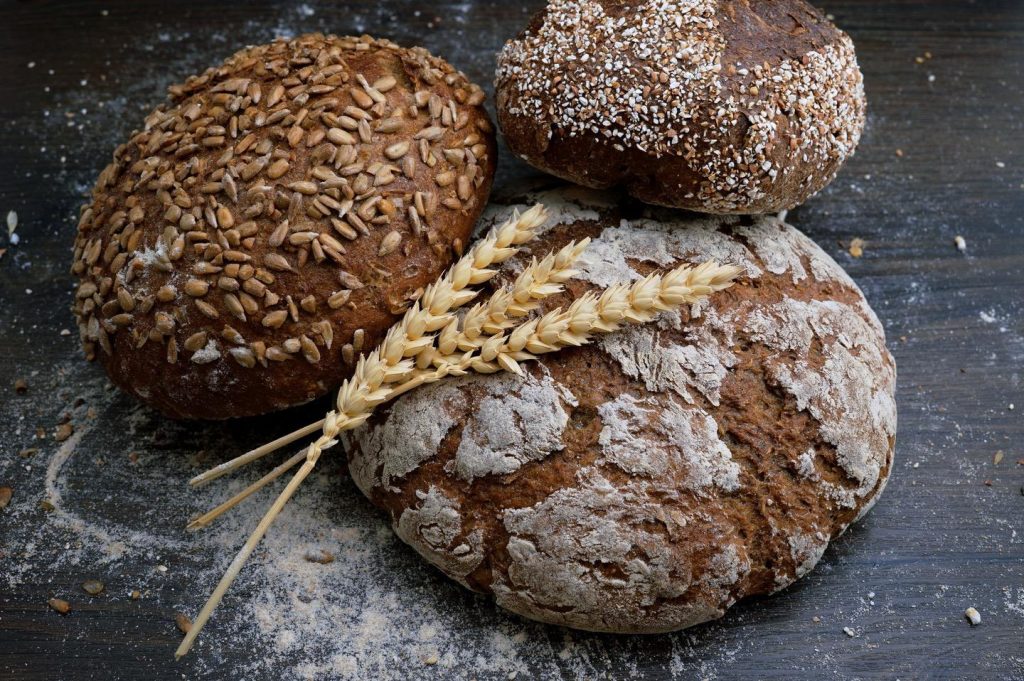
“Taking the five loaves and the two fish and looking up to heaven, he gave thanks and broke the loaves.”
We tend to think of saying grace before meals as something the Lord instituted at the Last Supper. But saying thanks to God for the food we are about to eat is something all Jews did. “The actions—looking up to heaven, thanking God, and breaking the loaves—are normal for any head of a Jewish household.” Yet Matthew is writing his Gospel with a very clear intention. That intention is that the reader might know that Jesus is Messiah. To that point the style of Matthew’s writing, where in the storyline He puts the various memories of his time with Jesus and even the words he choses to use are all tools toward this purpose. This intention comes to the forefront at various times in Matthew’s Gospel account, but perhaps especially so here.
In the account of the feeding of the 5000 – and again later in the feeding of the 4000 – Matthew uses language that connects with how he will describe the last supper and the institution of the Eucharist. “At the end of the day Matthew … wants to insist that, in relation to appreciating who Jesus is, the feeding has a kindred significance to the Last Supper and via that to the church’s Eucharist.” Matthew is being very deliberate in how he writes the story of this miracle – just as what Jesus was doing was highly intentional, so also what Matthew is doing is also highly intentional.
Saying grace before a meal is an intentional remembrance of who God is and who we are in relationship to Him. Likewise, participating in the Eucharist is as intentional as administering it. It takes thought and deliberate action to accept the new covenant as God’s people, and it takes thought and deliberate action for God’s people to remember the new covenant. Just as it takes thought and deliberate action on God’s part to provide both food for the day and the sacrifice of His Son to institute the new covenant.
We tend to forget that almost all of the important components to life and ministry are intentional. What you do at your job is intentional (for the vast majority of it, anyway). For that matter, even what job you take on is intentional. Where you move is intentional – when you go on a date is intentional. Marriage is intentional. Buying a home or renting an apartment is intentional. Participating to a larger degree in one sport or another is intentional. Intentionality is what adds impact to an event, because it brings with it anticipation of what results from that event.
Although it contains random events, life does not mostly consist of random events. It consists of intentional events and anticipated outcomes. Likewise ministry. It does have some rather random or unexpected moments, but for the most part it is as highly intentional as writing a book. It is our intentionality that provides for the anticipation of what God will yet do, and it is our intentionality that allows us to participate in what God is doing.
To live without intentionality is to live with only the past in mind, forgetting that God is the one who was, AND the one who is, AND the one who is to come.
Growing in faith is learning to recognize the signs of God’s work all around us. This takes intentionality and practice.
Mike Erre
APPLICATION: Intentionality
What is God doing to grow your faith in Him this week? How are you intentionally cooperating with Him?

